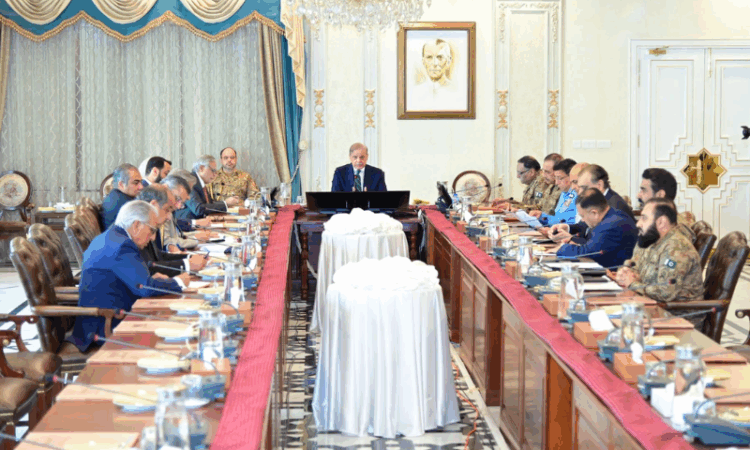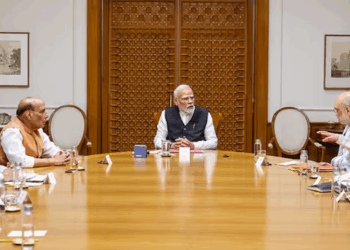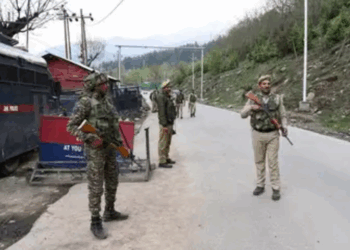Islamabad, April 24, 2025: In a decisive show of resolve, Pakistan has launched a series of robust countermeasures in response to India’s recent actions following the Pahalgam incident in Indian Illegally Occupied Jammu and Kashmir (IIOJK). The measures include the closure of the Wagah border, suspension of all bilateral agreements, including the landmark Simla Accord, and the expulsion of Indian diplomats, marking a new low in diplomatic relations between the two nuclear neighbors.
The sweeping decisions were made during an emergency session of the National Security Committee (NSC), chaired by Prime Minister Shehbaz Sharif and attended by the country’s top civilian and military leadership. The committee met in the wake of what it termed India’s “baseless and inflammatory” accusations linking Pakistan to the Pahalgam attack, which Islamabad has categorically rejected as a “false flag operation.”
In its official communiqué, the NSC expressed deep concern over what it described as India’s exploitation of the tragic loss of innocent lives for political gain. It condemned the attack while accusing New Delhi of using it to justify a raft of aggressive, unilateral actions.
Pakistan has now formally ordered the closure of the Wagah border for all movement beyond April 30. Indian nationals, with the exception of Sikh pilgrims, have been directed to leave Pakistan within 48 hours. Islamabad has also suspended all visas issued under the South Asian Association for Regional Cooperation (SAARC) framework. In a direct response to India’s expulsion of Pakistani defence personnel, Pakistan declared all Indian military, naval, and air advisers stationed in Islamabad persona non grata and ordered their immediate departure.
Furthermore, the government has closed Pakistani airspace to Indian aircraft and halted all trade with India, including through third-party countries. All diplomatic engagements, treaties, and cooperation initiatives, including the Simla Accord of 1972, have been suspended “until further notice.”
In one of the most striking elements of its statement, the NSC accused India of attempting to dismantle a binding international agreement, the Indus Waters Treaty of 1960, through unilateral declaration. The committee reiterated that the treaty, brokered by the World Bank, does not allow for suspension by one party. Any attempt to block Pakistan’s water share, it warned, would be viewed as an act of war.
“The Indus Waters Treaty is not a favour to Pakistan, it is a legal commitment,” the NSC emphasized. “We will raise this issue at all international forums. Pakistan will never allow its vital national interests to be compromised.”
In suspending the Simla Accord, the NSC argued that India’s recent conduct had rendered the decades-old framework irrelevant. It declared that India’s escalating aggression, discriminatory policies, and disregard for dialogue reaffirm the ideological necessity of Pakistan’s creation. “The Two-Nation Theory stands vindicated once again,” the statement said.
The NSC also issued a firm denunciation of India’s attempts to link Pakistan to the Pahalgam incident without evidence, stressing that such claims lack credibility. The committee reiterated Pakistan’s longstanding position that India is itself involved in fomenting terrorism on Pakistani soil. “Kulbhushan Jadhav remains living proof of India’s state-sponsored terrorism,” it stated.
Calling on India to cease its campaign of state repression and civilian killings, the NSC urged the international community to press New Delhi toward implementing UN resolutions on the Kashmir dispute.
In parallel, the committee reviewed Pakistan’s military preparedness and expressed full confidence in the armed forces’ readiness to respond to any external aggression. Sources confirmed that a detailed briefing was provided on operational capabilities and contingencies.
On the diplomatic front, Pakistan is preparing to engage international legal and political mechanisms to challenge India’s revocation of the Indus Waters Treaty and to seek accountability for what it terms New Delhi’s “reckless provocations.”
While emphasizing its commitment to regional peace and responsible statecraft, the NSC concluded by affirming that Pakistan’s restraint must not be mistaken for weakness. “We will respond with maturity, but with unwavering resolve. Our sovereignty, security, and rights under international law are non-negotiable,” the statement concluded.
As tensions continue to rise, Islamabad’s message is clear: Pakistan will not be coerced, and any further provocation will be met with a firm, proportionate response.








